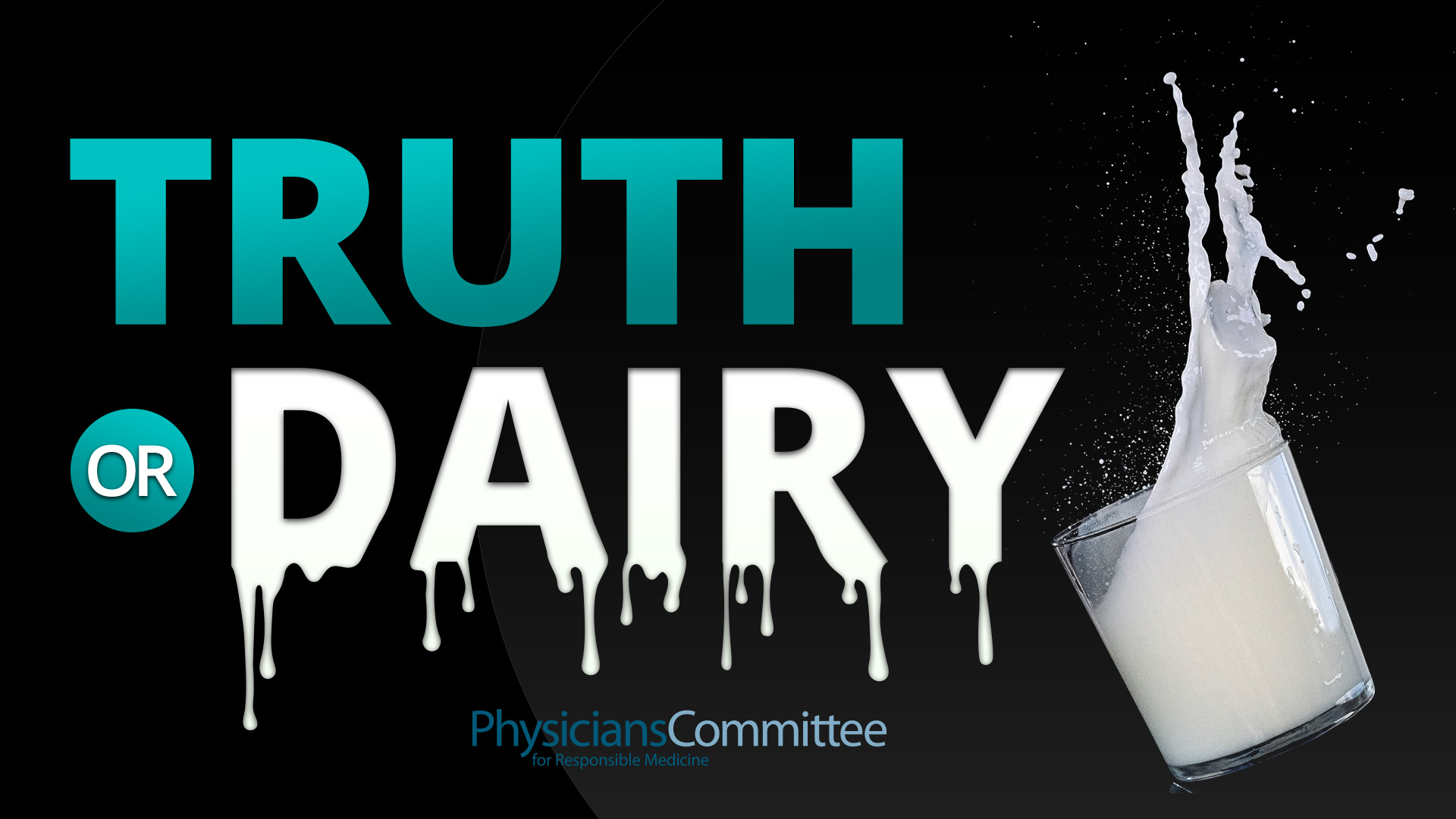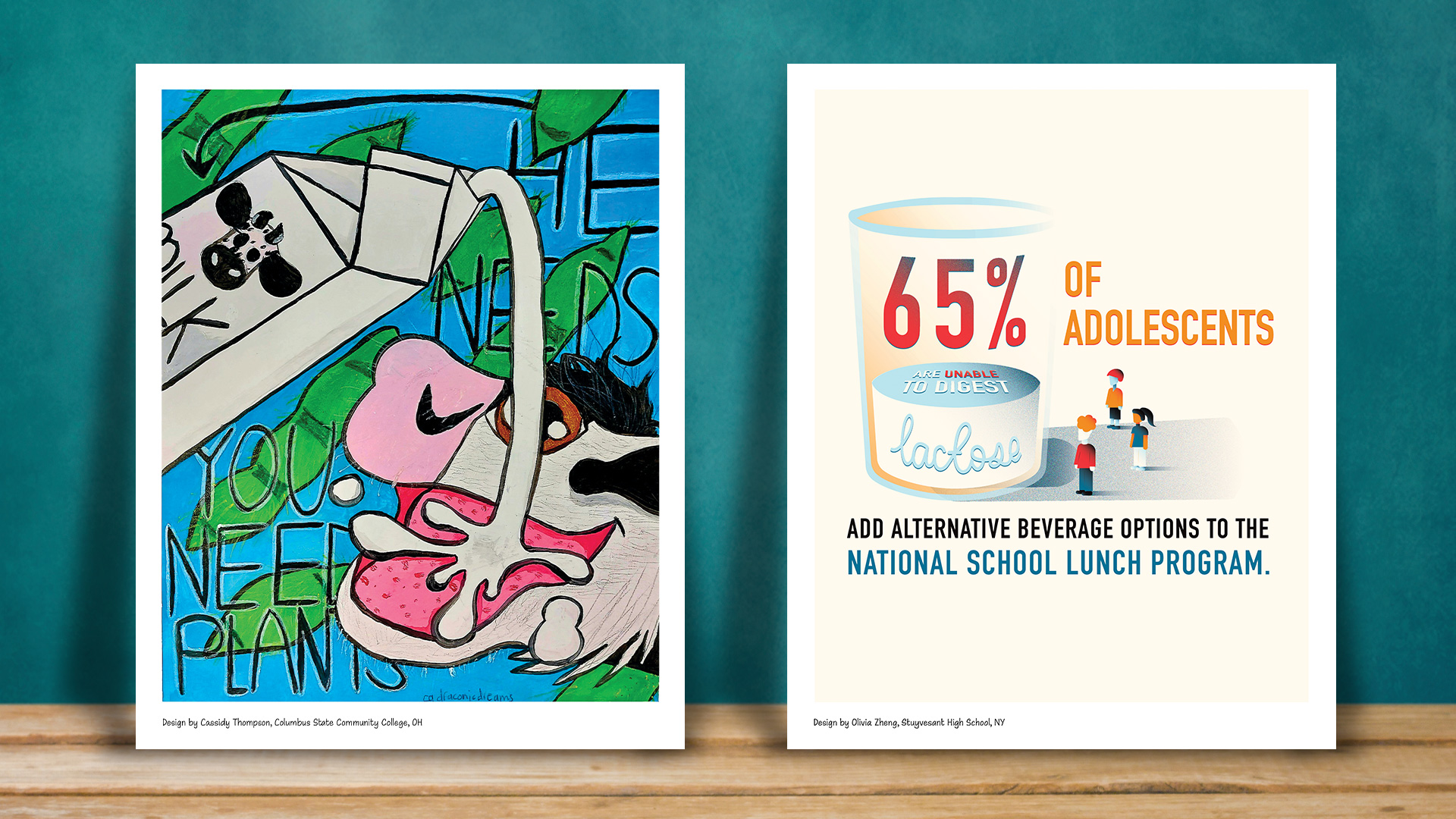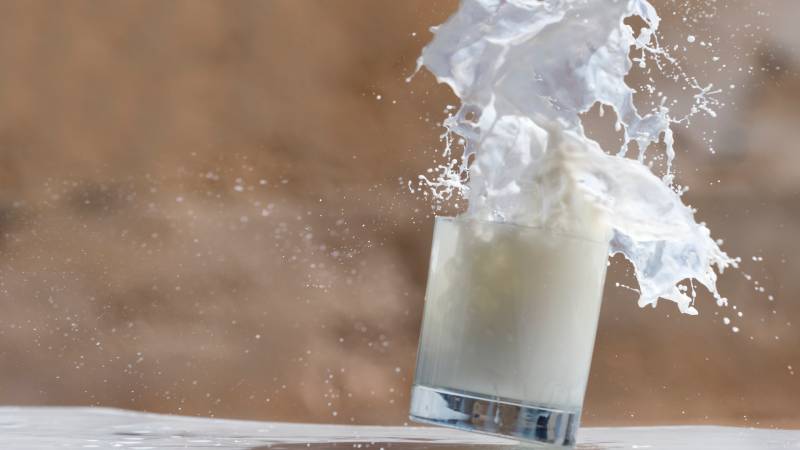Truth or Dairy: The facts about milk, health, and equity in school food
BREAKING NEWS: Student Succeeds in Landmark Lawsuit Challenging Big Dairy’s Stranglehold on School Meals. Learn more in the news release and in The Washington Post.
Truth or Dairy is a Physicians Committee campaign that partners with students, parents, and communities to raise awareness about the health and equity problems associated with serving dairy milk in schools. Federal school meals programs like the National School Lunch Program require that dairy milk be offered at every meal. Forcing milk on students in school cafeterias is unjust and unhealthy. Schools should not be used as a marketing arm for the dairy industry.
The Facts
Equity
- Dairy milk is a harmful food for many students of color who cannot digest lactose. USDA acknowledges the disproportionate rates of lactose intolerance among communities of color. Yet the hurdles to get a milk substitute make it next to impossible for students who don’t drink milk to receive the full value of their school meal. This sends the message to some students that school and government programs are not meant for them.
- Schools are not required to provide a nondairy substitute unless a parent submits a note from a physician documenting a disability, including lactose intolerance, that restricts their child’s diet.
- The inability to digest lactose is a specific genetic trait, like left-handedness or having curly hair, not a disability.
- The requirement for a physician’s note creates a financial and administrative burden for parents and disproportionately affects students of color.
- The cost of a physician visit (and the lost time from work for a parent) is an unnecessary hurdle that prevents students from receiving appropriate nutrition at school.
Student Choice and Free Speech
- Students should not be treated as a captive audience for dairy industry marketing.
- A federal law forbids schools participating in the National School Lunch Program from interfering with the sale or marketing of dairy milk at any time or place on school grounds or at school-sponsored events. This law unconstitutionally restricts the free speech of students.
- Federal school meals programs like the National School Lunch Program require that dairy milk be offered at every meal, directing schools not to even offer students drinking water before milk in the lunch line. Forcing milk on students in school cafeterias is unjust and unhealthy.
Health
- Dairy products are the number one source of saturated fat in Americans’ diets. Diets high in fat, especially animal fat, can increase the risk of heart disease and stroke and can cause other serious health problems.
- You don’t need dairy for strong bones. Research shows that dairy products provide little to no benefit for bone strength or preventing stress fractures.
- Calcium in dairy milk is only 32% absorbable compared to 45-65% absorption from beans and greens. Consuming dairy is unnecessary and risky for health.
- Consuming dairy products is linked to a higher risk of cancer, especially prostate cancer.
Take Action!
- Request that the USDA expands access to plant-based foods and plant-based milk options in K-12 schools through its new proposed meal patterns. Click here to take action.
- Fight Big Dairy promotion in your school! Ask your school to display one of our plant-based posters in the cafeteria! nutrition [at] pcrm.org (Request your 16-by-20-inch posters here) or download them in the resources section at the bottom of this page.
Student Sues School District
A Los Angeles high school student is suing her school district and the USDA for violating her First Amendment right to share information at school about alternatives to cow’s milk and health concerns about dairy consumption.







